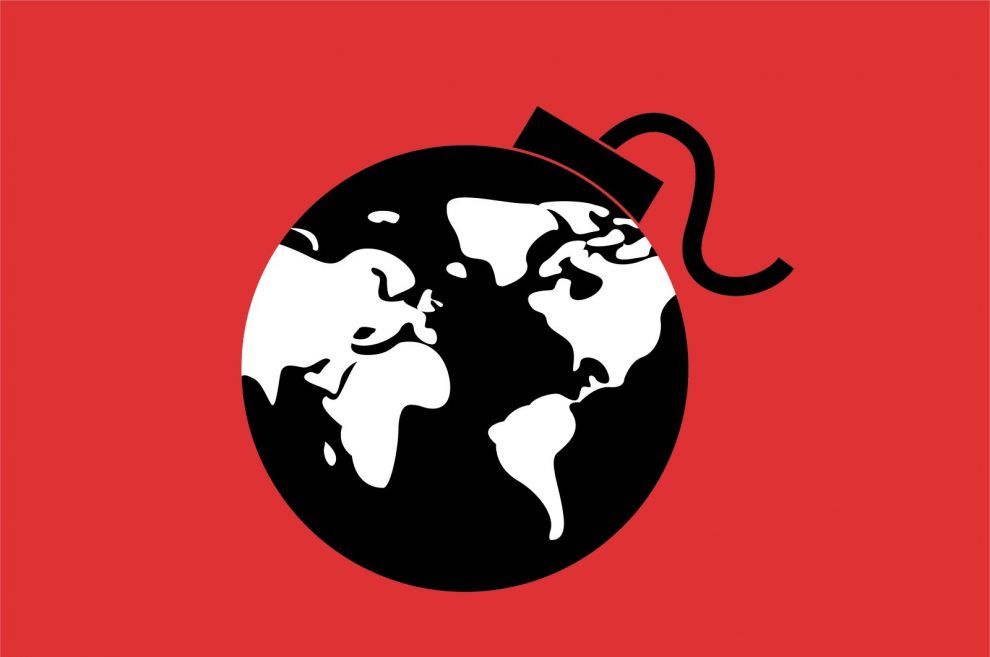Disagreements about defining a “terrorist” are an issue that continues to create problems between states, even allies. The same militant might be seen as a terrorist by one country while they can be called a freedom fighter by another. However, this is still not the root of the clashing views about terrorism. There is also the policy of supporting a group despite it being officially designated as a terrorist organization. For instance, the PKK terrorist group, which has been fighting against Türkiye to establish a Kurdish state, is on the list of terrorist organizations of the United States, the European Union and some other countries, but it is clear that the group’s members are widely not seen as terrorists.
Remember that two PKK members attacked the headquarters of the Turkish national police in Ankara on Oct. 1. Multiple Western media outlets did not label the incident as a terrorist attack in their news since they put the word terrorist in quotation marks (“terrorist”), meaning that the attack was not terrorism but the claim of the Turkish government. Since there was no local backlash regarding the coverage, it was clear that this was also their government’s view despite the fact that the PKK was already on their terror list.
Besides, a suicide bombing is an absolute act of terrorism regardless of who did it against whom. Yet, for Western media blowing yourself up to kill someone is still not terrorism – only a claim. The fact that the terrorists killed a civilian and seized his car to go to Ankara for the attack is also immune to terrorism charges.
Actually, such an attitude toward Türkiye is not new and not surprising. Unfortunately, Western states and media squeeze “terrorist(s)” into quotation marks but give them no limit for living in their lands. Many Turkish citizens committing terrorist acts or helping attackers fled to Europe and the U.S. and now live there without any fear of being extradited. These people conduct anti-Türkiye protests, indoctrinate people, lobby at the governmental level and collect money from sympathizers without any interruption. Türkiye has often condemned such demeanors and asked governments to prevent terrorism-affiliated personas but got no positive response.
Western mentality
Two reasons might be behind the Western mentality. First, a group of people believe that the PKK is a group resisting oppression, and their members are freedom fighters. This is not the case since the Turkish government does not oppress Kurds. Yet, it also doesn’t (and won’t) allow losing territories to a separatist group. Since there is no oppression of civilians and the majority of Kurds do not want an independent state, it is out of the question to tolerate the PKK’s violence.
From a different point of view, this type of Western stance requires evaluating situations fairly and coherently in all similar cases. For example, if the PKK terrorists are freedom fighters, so are the Russian separatists in Ukraine. Yet, according to the West, since the Russians of eastern Ukraine do not obey the central government, Russia’s support is unacceptable. Such hypocritical behaviors show that not wisdom but feelings and biases are prevalent in the trans-Atlantic world’s attitudes.
Second, the ruling elite of the West is aware of the PKK’s terrorism, but they still support Kurdish separatists to drive the Turkish government into the corner. It is not a secret that Turkish-European/U.S. relations are generally not stable, regardless of who runs the countries. As a way of hurting the Turkish state, the PKK and other terrorist organizations like the Gülenist Terror Group (FETÖ) have been used as a tool to bring Turks to their terms. The more relations deteriorate, the more such groups are used as a stick. As a result, the more Türkiye suffers, the more they enjoy the taste of indirect punishment via proxies.
However, their policy testifies against them regarding their commitment to cherished values such as democracy, human rights and freedom of speech. In addition, fighting terrorism has made Türkiye more resistant to attacks and created an indigenous defense industry. Terrorist groups have almost been paralyzed by Turkish security forces. This means that the terrorism stick no longer hurts considerably.
Simultaneously, a stronger Türkiye will not be affected much by sanction-like decisions, and Ankara’s response will probably be more disturbing to its interlocutors. Thus, the long-term loser of such contention is certainly not Türkiye but terrorist groups and their protectors.
Source: Daily Sabah






